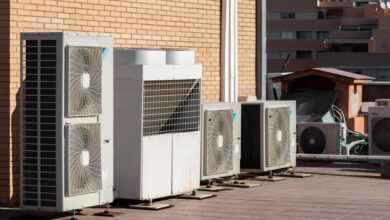Uncovering the Commercial Leak Detection Challenges and Solutions

Detecting leaks within commercial businesses and systems poses significant challenges. Commercial leak detection is a critical service, saving businesses and homes from potential disasters and costly repairs.
Let’s explore the primary challenges faced in commercial leak detection and the innovative solutions that are emerging to address them.
Complexity of Infrastructure
Commercial buildings often have extensive and complex plumbing and HVAC systems. These systems are intricately interwoven and can span multiple floors and large areas. This complexity makes it difficult to pinpoint the exact location of a leak. Unlike residential systems, which are relatively straightforward, commercial systems require sophisticated methods for effective leak detection.
Accessibility Issues
Leaks can occur in hard-to-reach areas such as behind walls, under floors, or within ceilings. Accessing these areas without causing significant disruption to business operations or structural integrity is a major challenge. Traditional methods might involve invasive procedures, which can be costly and time-consuming.
Early Detection Difficulties
Early leak detection is crucial to prevent extensive damage, but identifying leaks at their onset is often difficult. Small leaks might go unnoticed for long periods, gradually causing damage before they become apparent. Current technologies might not be sensitive enough to detect minute leaks, necessitating continuous improvements in detection equipment.
Environmental Factors
Environmental conditions can affect the accuracy of leak detection methods. Temperature variations, humidity, and background noise can interfere with detection technologies. For instance, acoustic sensors might struggle in noisy environments, while temperature sensors can be affected by ambient temperature fluctuations.
Cost Constraints
Implementing advanced leak detection systems can be expensive. Many commercial establishments, especially smaller businesses, might find it challenging to invest in high-end detection technologies. Balancing the cost of installation and maintenance with the potential savings from avoiding leak-related damages is a significant consideration.
Data Management
Modern leak detection systems often involve sophisticated data collection and analysis. Managing and interpreting this data requires expertise and can be a logistical challenge. Ensuring that the data is accurate, actionable, and secure adds another layer of complexity.
Technological Integration
Integrating new leak detection technologies with existing building management systems can be challenging. Compatibility issues, the need for customized solutions, and the learning curve for facility management teams can hinder seamless integration. Ensuring that new systems work harmoniously with legacy infrastructure is critical for effective leak detection.
Innovative Solutions on the Horizon
Despite these challenges, commercial leak detection is evolving rapidly, with several promising solutions on the horizon:
Advanced Sensor Technology
New sensors capable of detecting even the smallest leaks are being developed. These sensors use a variety of detection methods, including acoustic, infrared, and chemical sensors, to identify leaks more accurately and quickly.
IoT and Smart Systems
The Internet of Things (IoT) is revolutionising leak detection. Smart sensors connected to a central system can provide real-time data and alerts, allowing for immediate action. These systems can be integrated with building management systems for seamless monitoring and control.
Non-Invasive Methods
Non-invasive leak detection methods, such as thermal imaging and ground-penetrating radar, are gaining popularity. These methods minimize disruption and damage to the building while accurately locating leaks.
Machine Learning and AI
Machine learning and artificial intelligence are being leveraged to improve leak detection algorithms. These technologies can analyze vast amounts of data to identify patterns and predict potential leaks, enabling proactive maintenance and early intervention.
Cost-Effective Solutions
Innovations aimed at reducing the cost of leak detection systems are making them more accessible to smaller businesses. Affordable, scalable solutions ensure that even enterprises with limited budgets can benefit from advanced leak detection technologies.
Conclusion
The challenges of commercial leak detection are significant, but so are the advancements being made to overcome them. As technology continues to evolve, the industry is moving towards more efficient, accurate, and cost-effective solutions.
As plumbing and drainage experts, we specialise in tackling the unique challenges of commercial leak detection. Our expert team uses cutting-edge technology, including advanced sensors and IoT-enabled systems, to accurately and swiftly identify leaks, even in the most complex and hard-to-reach areas.
We offer cost-effective, non-invasive solutions to minimize disruption to your business operations. Contact us today.




